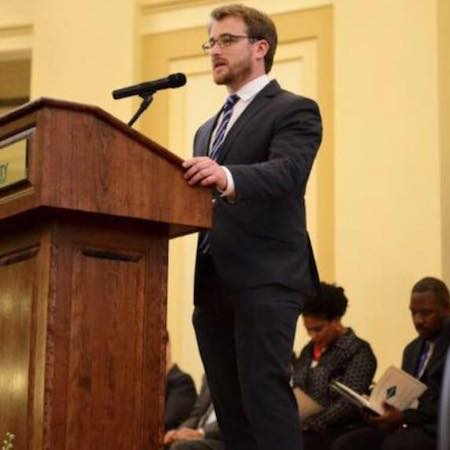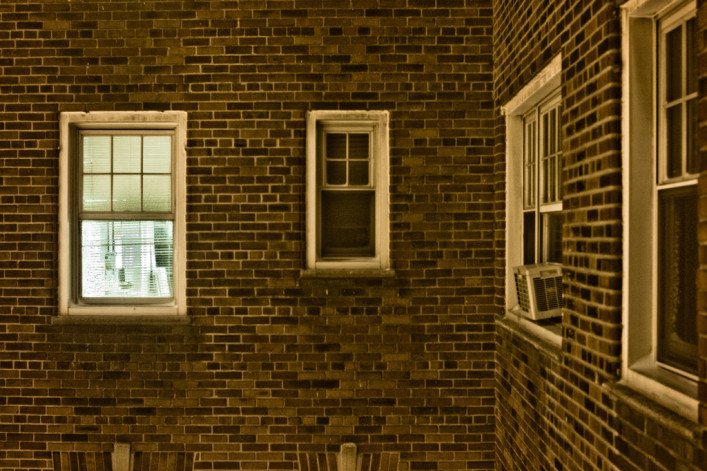'We're not anti-landlord, we're anti-stealing': Talking to a self-appointed enforcer of NY's rent laws
In New York, it is the tenant's responsibility to figure out if his or her apartment is supposed to be rent-stabilized or whether he or she is being overcharged. To challenge the status of one's apartment, a renter must first a) have knowledge of how rent regulation works b) request her rent history c) consult with a lawyer to see if recent rent increases look appropriate d) file a formal challenge and e) pray that the landlord doesn't have documentation on hand making the increases appear legitimate (a friendly contractor, for example, might provide receipts stating a $20,000 renovation cost $100,000, allowing for a proportionately larger rent increase).
Apart from the handful of cases pursued by the state's recently formed Tenant Protection Unit, state rent regulators are reactive, meaning even if one tenant prevails in showing an improper, or even fraudulent increase, her neighbors' status will go unquestioned unless they too learn about and exercise their rights. This is true even where the rent fraud appears obvious, as in buildings where the owners receive tax breaks in exchange for keeping apartments rent-stabilized, and then withhold rent-stabilized leases and charge market rates.
A recent series of investigations by ProPublica found, among other issues, that more than two thirds of more than 6,000 buildings in New York City whose owners were collecting tax breaks under the controversial 421-a program failed to satisfy the paperwork requirements for the benefit, and more than half of the buildings were not being treated as rent stabilized.
In response to the exposes, state officials have gently reminded owners to update their buildings' registrations and provide tenants with rent-stabilized leases or risk losing the subsidy, as opposed to, for example, announcing criminal prosecutions for tax evasion and filing false documents.

Into this breach has stepped Aaron Carr (pictured), who founded the group Housing Rights Initiative last year. Other, long-established tenant advocacy groups challenge the stabilization status of whole buildings, but what makes HRI unique is its exclusive focus on researching buildings that collect tax breaks through programs such as 421-a and J-51, and where organizers suspect overcharges, bringing class-action lawsuits on behalf of tenants. HRI has brought 12 such lawsuits so far, including against big-time landlords Kushner Companies and Laurence Gluck's Stellar Management.
Carr has big plans for the year to come. We spoke with him to find out more.
How did you get the idea to start this organization?
Prior to starting Housing Rights Initiative I was the chief of staff for Assemblyman [Michael] Blake in the South Bronx, which is one of the most under-served areas in the country. It was in that role that I came to realize that New York City has some incredible laws and virtually no enforcement. In fact, we live in an enforcement desert, and nowhere is this more evident than in the realm of housing.
Housing violations in the South Bronx run rampant. Constituents would literally call us about housing issues at all hours of the day, every day, around the clock, 24/7. Initially we tried to get the city and state enforcement agencies to try to get help, but we ended up waiting and waiting and waiting. It was like waiting for Superman, but Superman never came.
So we had to take matters into our own hands. We implemented what we call a bottom-up enforcement model, which entails organizing, mobilizing, and connecting tenants to legal support. We leveraged the power of numbers to incentivize attorneys to take the cases on at no out of pocket cost. Once I realized this model works, I left the Assembly and started Housing Rights Initiative. The goal of HRI is to help tenants gain access to one of the greatest legal systems in the world.
Can you walk me through the approach that you take? How you decide what building to contact, how you reach out?
So, Housing Rights Initiative uses a data-driven approach to identify and detect fraudulent practices, and organizes class-action lawsuits against predatory landlords. HRI conducts analysis on rent-stabilized portfolios and essentially looks for statistical indicators of illegal rent overcharges. We then work with tenants in those buildings, collect rental information, and determine whether a systematic pattern of rent overcharges exists. Upon uncovering a fraudulent rent scheme, we then mobilize tenants and incentivize experienced law firms or nonprofit legal service providers to pursue class actions on a pro bono or contingency basis.
Our model is fairly simple: it's target, investigate, and resolve.
And what is an anomaly in the data that would indicate to you that a building merits further investigation?
If a building is receiving a tax benefit that requires the landlord to stabilize 100 percent of the units, and less than 100 percent of the units are rent-stabilized, that's one way. Another way is we look for irregularities in the building income. What is rent stabilization? It provides tenants with affordable, manageable, and predictable rent increases. If we see a large spike in the rental income of an almost fully rent-stabilized building, we know potentially something might be wrong, and often something is wrong.
As far as I know rent rolls aren't public, so how do you see a rent spike?
Landlords have to register their building income with the Department of Finance, so when you evaluate that data over time, irregularities oftentimes manifest themselves.
In addition, landlords have to register the rents of all the apartments with [the Division of Housing and Community Renewal], the state housing enforcement agency, so when tenants submit this information to us, we can then look for irregularities on the rents of their apartments themselves.
Right. What portfolios are you working on at the moment?
Kushner Companies.
How did you choose them?
We have a long list of target landlords. For Kushner Companies it's easy. You just put them into Google, and you know you should add them to your list. They have—how do I put this—a less than desirable history.
Sure. How many people are part of your organization nowadays?
We have two staffers, a group of interns, and an army of lawyers with which we partner.
And what's the strategy for approaching tenants?
We will canvass the buildings. We'll notify the tenants of potential malfeasance, we'll invite them to a neighborhood meeting, and at those meetings we'll introduce them to legal support.
So you're doing a lot of knocking on doors, putting up flyers, that kind of thing?
Yep.
And how do you decide on which lawyers to partner with?
HRI looks for lawyers who are experienced, effective, and proactive, lawyers with the acumen to help navigate tenants through the legal labyrinth of rent stabilization, and lawyers with a track record of success in obtaining rent refunds, rent reductions, and rent-stabilized leases for aggrieved tenants. So for an impacted family, this is more than just a lawsuit. [The money they're losing to overcharges is] their food, it's their savings, it's their quality of life.
Rent fraud is not a game. It's a full-blown tragedy. So simply put, we want lawyers who can get the job done and get it done right.
And of course they have to be willing to work on a contingency or pro bono basis.
That is right. An integral part of our model is that no tenant should have to pay anything out of pocket. This way every tenant has an opportunity to exercise their rights irrespective of income or their financial situation.
Is it fair to say that yours is the first organization to take this approach?
There are many amazing organizations assisting tenants with housing issues. What makes HRI unique is that we are exclusively focused on rent fraud. Unfortunately DHCR uses a reactive enforcement model that places the burden on tenants to understand hundreds of pages of real estate law to know if they're being overcharged and how to exercise their rights. Moreover, the rent-stabilization system effectively depends on landlords to self-report their buildings' rents. The entire thing is based on an honor system. And that's not a very good idea in a real estate market that's valued at $1 trillion.
What you end up with essentially is a football game without a referee. It's our government's responsibility to put the necessary reforms in place so that there would be no need for an organization like Housing Rights Initiative. Some people would say that it's idealistic to say that we could free our affordable housing system from fraudulent practices. To that we say, if we were able to eradicate polio from almost every country in the world, we can almost certainly eradicate rent fraud from one city.
Do you buy the notion that the real estate industry's contributions to politicians have contributed to lax enforcement?
Absolutely. This speaks to the notion that we're opportunists and somehow unfairly targeting landlords. If by an opportunist they mean seizing upon the opportunity to get back hundreds of millions of dollars that have been brazenly stolen from vulnerable families, I would have to agree. HRI doesn't look for accidents, we look for patterns, fraudulent patterns. That's because rent fraud is part of a systematic business model that doesn't affect one, two, or three units, but entire buildings and entire portfolios. The way to think of it is like termites. Where there is one there are many.
The truth is landlords have one of the most important jobs in New York City, because without them, who would own and manage our buildings? We would be screwed without them. So we're not anti-landlord, we're anti-stealing. And it just so happens that a lot of landlords are stealing.
Landlords are also huge contributors to politicians. Over 10 percent of contributions at a state level come from real estate, so while money can't buy you love, it can almost certainly buy you government. Our housing woes are not just housing woes, they are also campaign finance woes. None of this is by accident, and all of it is by design.
You've gotten a lot of publicity in the last few years. What sort of response have you gotten from the more established activist community?
Without the established housing advocate community, there would be no HRI. During my time in government, it was they who taught me almost everything I know. From people like Afua Atta-Mensah at [Community Voices Heard], who introduced me to housing law, to Kerri White at [the Urban Homesteading Assistance Board], who opened my eyes to the world of speculative real estate practices, to Judith Goldiner from Legal Aid, who is one of the most knowledgeable and effective attorneys I've ever met, to my mentor Michael McKee, who has taught me the entire history of rent stabilization. The activist community has been incredibly supportive. I know them from my time in government. They're the people who inspire me. They're why I started Housing Rights Initiative, and why my social life has reached the point of no return.
Speaking of which, what do you do for fun when you're not activist-ing?
Well I'm happy to announce that I recently got my Saturdays back, or at least part of my Saturdays. So when I'm not doing housing stuff, I like to read, hang out with my friends, explore the city, and do stuff besides sit in front of my computer all day and run around the city like a maniac trying to solve the rent fraud epidemic.
What are you reading right now?
I am reading Team of Rivals: The Political Genius of Abraham Lincoln, by Doris Kearns Goodwin. I should finish it by approximately 2025.
Sounds like some heavy lifting. Have you gotten feedback personally from anyone in the landlord community?
Very rarely do we get feedback from landlords, but there was one landlord who we were targeting who requested a meeting with us so he could "help us grow." I found this peculiar since I'm not a plant. But needless to say, we didn't meet with him, because we were too busy trying to save his tenants from his fraudulent rent scheme.
Have you picked up any scuttlebutt about what landlords are saying to each other about you?
I've heard we're not loved. But we did not expect landlords to take kindly to us trying to take back money that they stole from tenants. And as I said, there are some good landlords. We need them. We just don't want to live in a society where stealing and defrauding is the norm.
What is up next? What are your plans for the next year or so?
To continue our crusade against fraudulent real estate practices. We want to get back as much affordability and as much money for these tenants as humanly possible.
You have a fundraiser going. What is it raising money for specifically?
To hire a Spanish interpreter, to build out a robust field operation, and to organize 75-100 class actions in the next year.
Sounds like quite a bit.
[laughter]
You Might Also Like


























